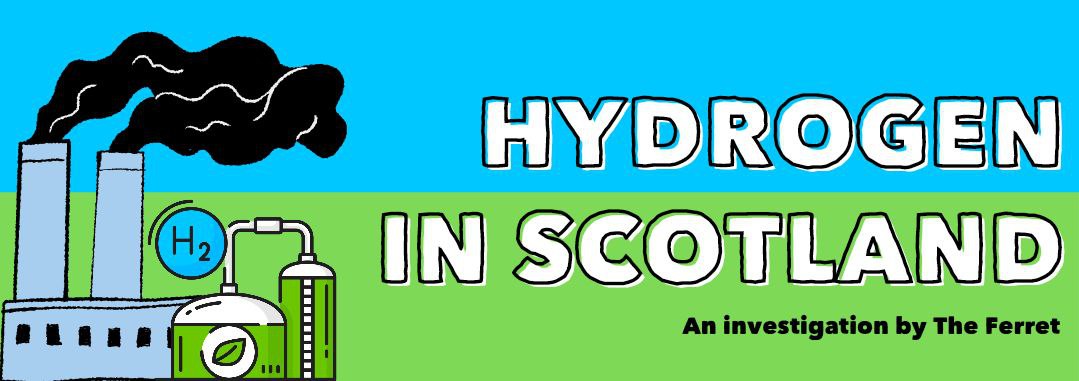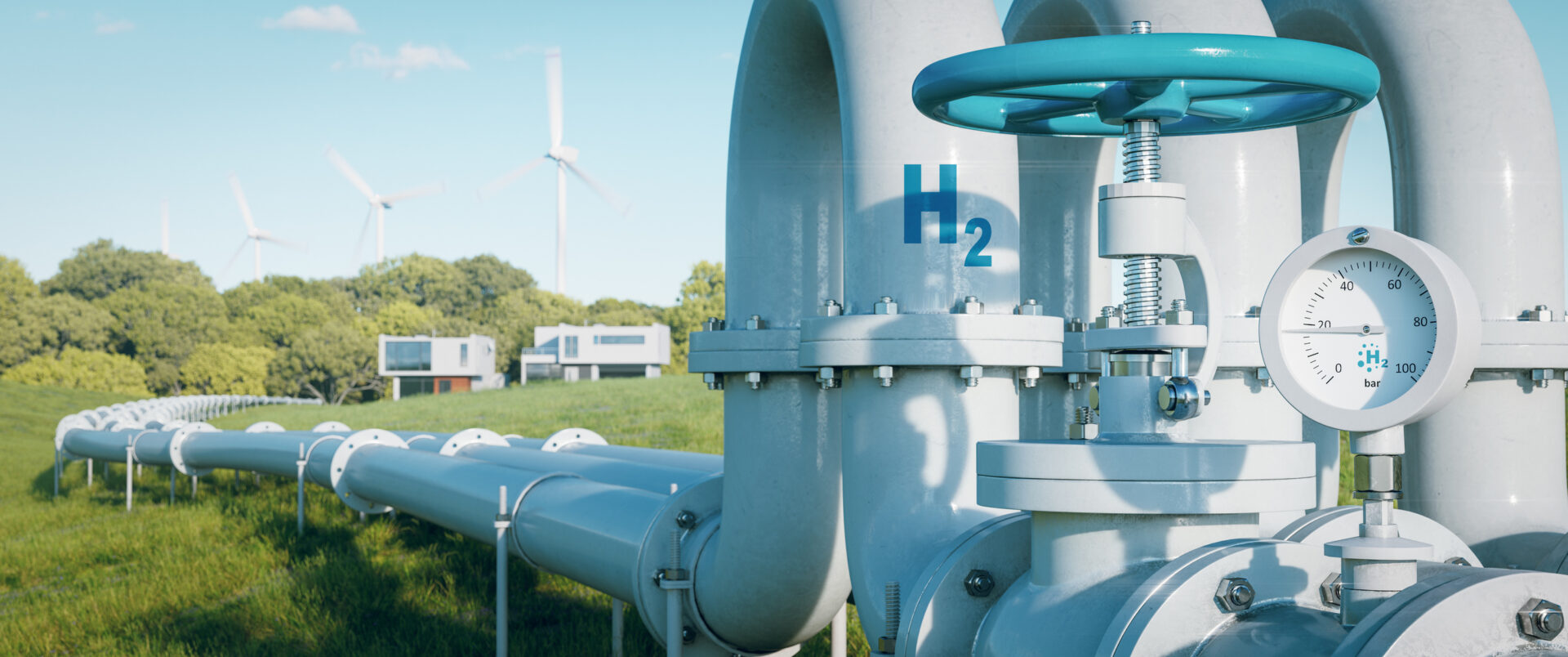A ‘world-first’ trial of hydrogen heating systems in Fife is yet to sign up its targeted number of local households despite offering residents a £1,000 ‘bribe’ to take part.
SGN – which manages Scotland’s gas networks – is aiming to sign up 300 households in Levenmouth to take part in the H100 project. H100 is set to trial the use of hydrogen as a greener alternative to natural gas to heat homes in the area.
One of the project’s main aims is to prove “customer acceptance, interest and appetite for hydrogen heat” ahead of a UK government decision on whether to invest in the technology in 2026.

But SGN has told The Ferret that since registration opened in November last year, “over 250 households” have signed up for the trial. The company is still short of its 300 household target despite offering residents £1,000, free hydrogen appliances and promising them that their heating bills will remain the same as with gas.
Before the money was first offered to residents in August, the project had signed up just 50 homes, according to SGN. A company spokesperson told The Ferret that H100 had received “overwhelming support” in the project area, adding that sign ups had ramped up since it started “direct recruitment” in October.
Politicians and campaigners who are sceptical about the use of hydrogen for home heating are unconvinced.
They argued that the current failure to meet the target showed Fife residents “share their scepticism” even when SGN is “bribing” them.
One claimed that the project was “looking like a failed side-note in history” and that all concerned should be “cutting their losses” and “investing their money in insulation and heat pumps”.
Home heating currently accounts for 14 per cent of the UK’s carbon emissions, so finding a cleaner alternative to natural gas is an essential part of the transition to net zero.
Hydrogen is one touted solution because it does not produce any carbon emissions – the main cause of the climate crisis – when it is burned.
Using hydrogen – rather than other green technologies such as heat pumps – is the preferred decarbonisation pathway for the UK gas industry.
The sector believes using hydrogen would be a “low cost and low disruption” way to make home heating greener because much of the current gas network infrastructure, supply chains and workforce would remain intact.
Hydrogen heating remains a controversial idea, however. Critics argue that it is expensive and an inefficient use of both renewable energy and hydrogen resources, while there are concerns about indoor air pollution.
Environmentalists have also pointed out that while H100 will use ‘green’ hydrogen produced using renewable energy, most UK hydrogen still comes from fossil fuels so does create significant climate emissions.
The H100 project is looking like a failed side-note in history even before the first hydrogen flows.
Richard Dixon
Homes which sign up to participate in H100 will have hydrogen – produced by a nearby offshore wind farm – piped into them using a newly built network.
They will receive free hydrogen boilers, cookers and fires which will also be maintained at no cost for the duration of the trial.
The UK energy regulator, Ofgem, is the biggest single H100 investor, having provided £18m through its annual energy network innovation competition. The Scottish Government has also provided £6.2m in funding.
Households were due to start receiving hydrogen during 2023, with the project expected to run through to the end of March 2027.
But due to delays SGN now says it is “confident” of delivering hydrogen to the homes in the second half of 2024.
Meanwhile, a demonstration facility which was a key part of plans to engage with the community will not begin construction until January next year, nearly a year after it was supposed to be opened to the public.
H100 is one of a number of gas industry initiatives aimed at providing evidence that hydrogen is a viable replacement for gas ahead of a UK Government decision on whether to invest in the technology to heat buildings in 2026.
Elizabeth Leighton, director of the Existing Homes Alliance – a coalition of housing, environmental, fuel poverty and industry organisations – claimed that hydrogen does not yet exist as an “affordable and efficient heating solution”.
Now, more than ever, we should be giving people real life solutions that can reduce bills and tackle climate change.
Elizabeth Leighton, Existing Homes Alliance
“Trials like H100 continue to give the public the misleading impression that hydrogen is a viable way to decarbonise home heating,” Leighton told The Ferret.
“The energy crisis is pushing thousands more households into fuel poverty in Scotland. Now, more than ever, we should be giving people real life solutions that can reduce bills and tackle climate change.”
Leighton wants to see more investment in heat pumps and insulation, rather than hydrogen, as the main alternative to natural gas.
Former Friends of the Earth Scotland director, Richard Dixon, agreed with Leighton’s view. He added: “H100 was supposed to be testing the level of public interest and acceptance of hydrogen heating but it has shown how little interest there is even when they are bribing people to take part.
“The H100 project is looking like a failed side-note in history even before the first hydrogen flows.”
The Scottish Greens MSP for mid-Scotland and Fife, Mark Ruskell, claimed future hydrogen resources should be “focussed in industrial sectors that otherwise struggle to decarbonise” rather than used for domestic heating.
“I was sceptical at the start of this project, and it seems households in Fife share that scepticism.”
An SGN spokesperson said: “We’ve received overwhelming support from the local community and residents in the coverage area. We are actively recruiting at the moment and over 250 householders have registered to take part in H100 Fife so far.
“We opened our registration from November 2021 to allow early adopters to register before our direct recruitment began in October 2022.
“A key element of the trial is understanding customer sentiment and the types of support needed to move away from their natural gas boilers. The trial is building valuable evidence of the requirements to incentivise different customer types to make the change to zero carbon heating.”
The Ferret has received funding from the Global Strategic Communications Council, a collaborative project hosted by the European Climate Foundation, to investigate the roll out of hydrogen technology in Scotland. The Ferret maintains complete editorial independence.
Cover image thanks to Petmal/iStock














